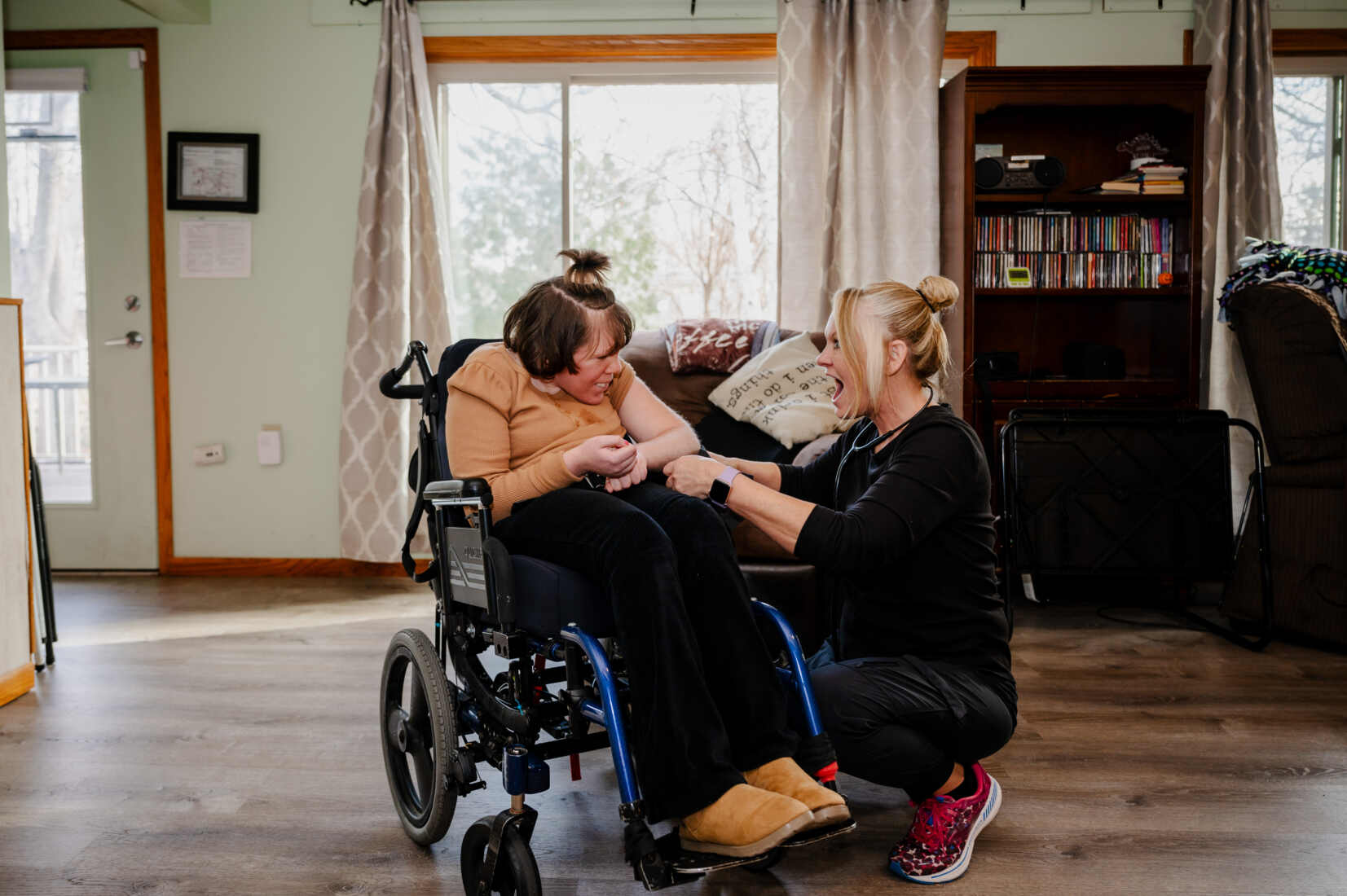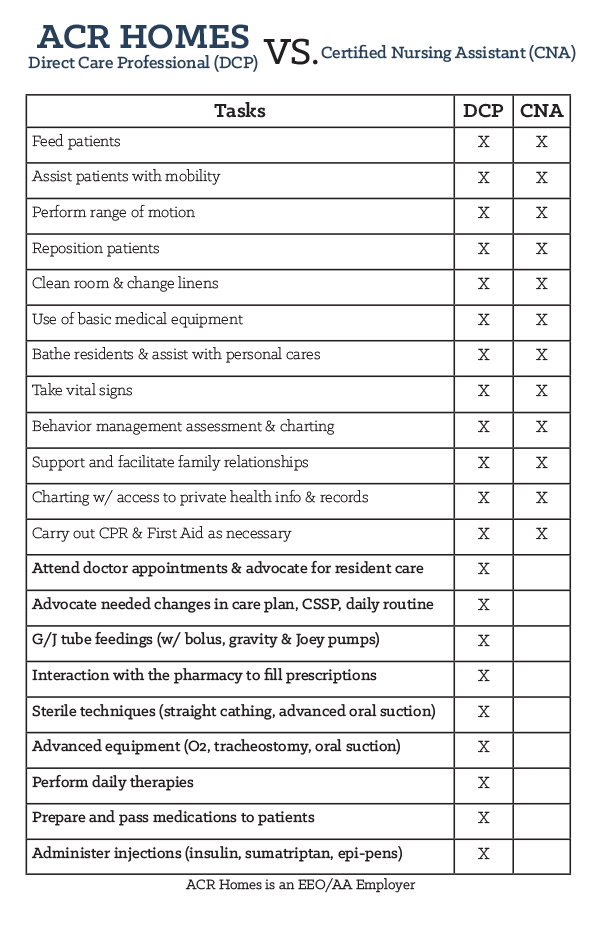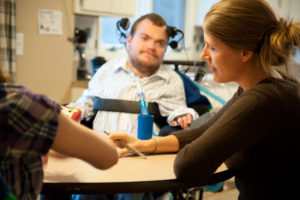Info for CNAs
CNA certification (Certified Nursing Assistant certification) is not a requirement to work at ACR Homes. Once you are hired, ACR will train you in CPR, First Aid, passing medications, personal care, basic nutrition, behavior management, and many other important components of being a health care professional. Not only can you skip the expense and hassle of enrolling in a CNA training course, as a Direct Care Professional at ACR we'll pay you for your training hours!
That's right: you actually get paid to be trained at ACR, versus having to pay to enroll in CNA certification classes. If you already have CNA certification, the direct care hours you work at ACR can help you maintain that certification. Furthermore, ACR's training for Direct Care Professionals goes above and beyond the requirements for CNA certification. See the chart below for a direct comparison!


ACR Training versus CNA Certification
In addition to more training, Direct Care Professionals (DCPs) at ACR typically have more healthcare experience opportunities than CNA certification allows. We take pride in knowing that the experience ACR employees gain goes beyond many opportunities for CNAs. The chart on this page shows specifically what training DCPs receive, versus an official CNA certicication.

Students in healthcare degree programs also find that working at ACR can meet requirements for patient care hours. Plus they can gain incredible experience and transferable skills. DCPs can perform many healthcare tasks that would require an LPN or RN certification in a hospital setting.
Speaking of experience, employees at ACR find that their patient care hours go far beyond meeting medical needs. DCPs typically develop great relationships with the people they support. They have opportunities to to observe subtle changes in health and the long-term impact of their efforts. DCPs also gain experience in "bedside manner" and reading non-verbal cues regarding preferences and interests. They learn how to make each person comfortable and happy. These are all important aspects to providing outstanding care.
